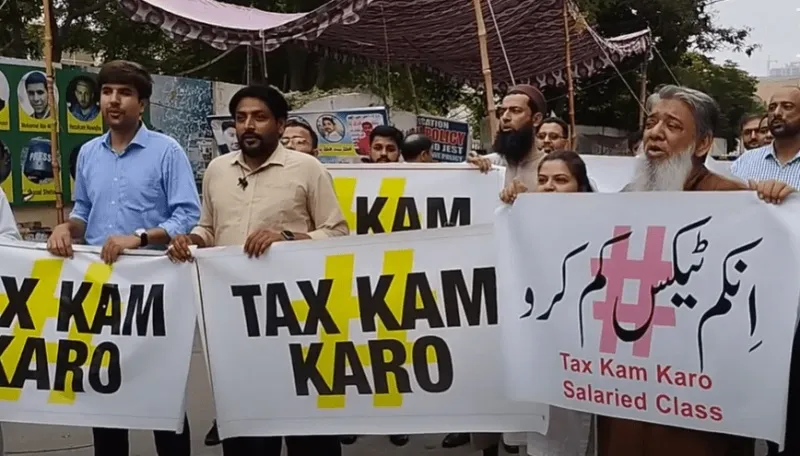Islamabad, April 11: Federal Finance Minister Muhammad Aurangzeb announced that the upcoming federal budget will provide much-needed relief to salaried individuals, along with further reductions in electricity costs.
He confirmed that a comprehensive relief package specifically aimed at easing the financial burden on the salaried class has been finalized and will soon be shared with the International Monetary Fund (IMF).
In addition, he expressed optimism that electricity bills will be lowered by July, if not earlier, as part of broader efforts to ease inflationary pressures.
Aurangzeb emphasized that Pakistan has successfully met all of the IMF’s targets, and the Executive Board is expected to approve the staff-level agreement by May.
As a result, Pakistan is poised to receive the next $1 billion loan tranche, in addition to supplementary climate financing.
These developments are seen as critical steps in stabilizing the country’s economy and building investor confidence.
According to the finance minister, 98 percent of budget proposals submitted by both public and private sector stakeholders have been reviewed.
The government will soon notify stakeholders about which of these proposals are viable and will be incorporated into the budget.
He further clarified that the finalized budget will be implemented from July 1 without any post-approval amendments to ensure quick and efficient execution.
Aurangzeb also touched on the government’s approach to tax reform. He acknowledged that while tax collection from traders has improved, the new trader-friendly scheme should not be directly associated with revenue generation.
Read More: Salaried Class Burdened with Rs. 100B Extra Tax in 7 Months
Instead, it aims to enhance compliance and formalize the sector. To facilitate broader participation in the tax system, a simplified tax return form is being developed for general use.
In a significant policy shift, the finance minister announced that tax policy will now fall under the direct jurisdiction of the Ministry of Finance, streamlining the decision-making process and aligning it more closely with national fiscal goals.
Salaried Class Under Tax
Salaried individuals are subject to a maximum tax rate of 35%, whereas the highest rate for other income groups can go up to 45%, the minister noted in his written reply.
Sharing specific data, the minister revealed that tax revenue collected from salaried persons rose from Rs188 billion in FY22 to Rs368 billion in FY24, representing a substantial increase of 95.74%.
This growth reflects contributions from both government and private sector employees.
The Federal Board of Revenue (FBR) has informed the National Assembly that the salaried segment now stands as the third-largest contributor to national tax revenues, with collections from this group showing remarkable growth over the past three fiscal years.
This update came in response to queries from Members of the National Assembly (MNAs) Syeda Shehla Raza, Muhammad Moin Aamer Pirzada, Ms. Shazia Marri, and Naveed Aamir, who sought information on tax collection trends related to salaried individuals, overall revenue targets, and the projected effects of planned fiscal reforms.
Read More: Pakistan Salaried Class Hit with 40% Higher Taxes in 2024
Finance Minister Muhammad Aurangzeb stated that within the top four income brackets, individuals earning salaries rank third in terms of tax contribution.
However, he highlighted that the tax rate on salary income is comparatively lower.
In FY22, 331,411 government employees paid a total of Rs43 billion in taxes. By FY24, the number of salaried government workers had grown to 526,056, with their tax contributions rising to Rs88 billion.
This marks a 58.73% increase in the number of government salaried taxpayers and a 104.65% surge in their tax payments over the period.
Also Read: Salaried Class Bears Rs. 120B Extra Tax Burden
Likewise, in the private sector, salaried individuals numbered 1.038 million in FY22 and contributed Rs145 billion in taxes. By FY24, this group had expanded to 1.59 million, with their tax payments rising to Rs280 billion.
This reflects a 53.18% growth in salaried taxpayers in the private sector and a 93.11% increase in their tax contributions during the three-year span.
